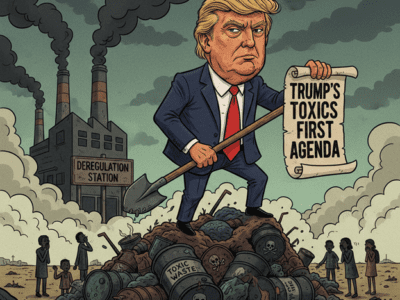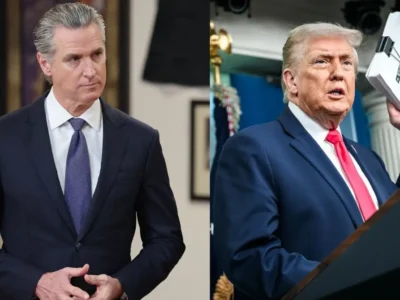2024: Ending on a Dark Note
It was a pretty good year for the environment – until November 5, that is.
No point in mincing words: 2024 ended on a grim note for anyone who cares about the environment. Donald Trump is once again in the White House. His record in the first term made him in the most anti-environmental President in history. The story of the next four years will be a struggle to limit his damage while trying to continue progress at the state level and in the private sector.
Although the outcome of the presidential race bodes ill for environmental protection, 2024 was not a wave election. The Democrats faced an unforgiving Senate map, with no chance to flip a Republican seat and many of their own seats at risk. The GOP did win control of the Senate, but Democrats held onto seats in nearly all the swing states that Trump carried: Arizona, Nevada, Michigan, Wisconsin, but with the narrowest of losses in Pennsylvania. In the House, Republicans added only slightly to their existing majority.
In terms of the Supreme Court, the big news was that Chevron was overruled. The Chevron doctrine required judges to defer to any reasonable interpretation of a statute by an administrative agency. The approach that the Court substituted for Chevron was not well-explained, leaving lower courts confused. It seems clear, however, that the Court meant to reduce the amount of discretion that agencies have in interpreting statutes. In a post in July, I asked whether the ruling might not turn out to be a “sheep in wolf’s clothing.” The net effect of the policy is to make it harder for agencies to do flip-flops when control of the White House shifts. Right now, that’s looking like a very good thing, even if in principle the Court was wrong.
At the state level, there weren’t any big breakthroughs in climate policy, but there were a slew of incremental actions that favored clean energy. Over a dozen states have set net-zero targets. Now it’s the time for the hard for work attaining those goals. The biggest setback for state climate policy would have been an initiative axing Washington State’s cap and trade program. But voters handily defeated that effort.
The private sector was a ray of light despite the negative political developments. There’s been considerable progress globally and in the US. The International Energy Agency reports that global energy investment this year will likely exceed $3 trillion for the first time, with two-thirds going for clean technologies. According to Clean Investment Monitor, U.S. clean tech investment hit $147 billion in the first half of this year, more than a 30% increase over the first half of 2023, which itself was a big jump over 2022.
In other words, there was one huge setback for environmental policy in Trump’s election. But in other respects, the year was more mixed, with some setbacks in Congress but good developments at the state level and the private sector. Given the lack of a Republican wave, the long term significance of Trump’s election will remain unclear.
Reader Comments
One Reply to “2024: Ending on a Dark Note”
Comments are closed.






Yes, it looks dark, but it always does before a storm hits. I think we should all be looking at adding Green Amendments to state constitution bill of rights like they did in Montana, New York, and Pennsylvania with another nine states already introducing Green Amendment legislation and more considering it. https://forthegenerations.org/active-states/